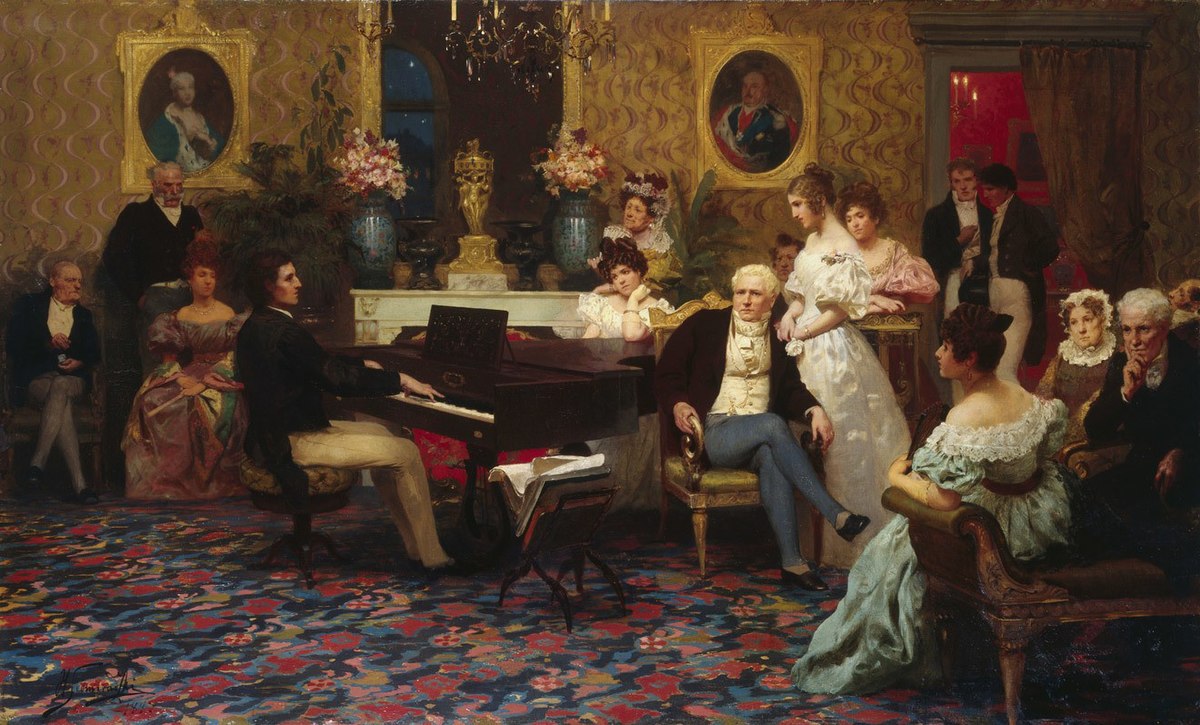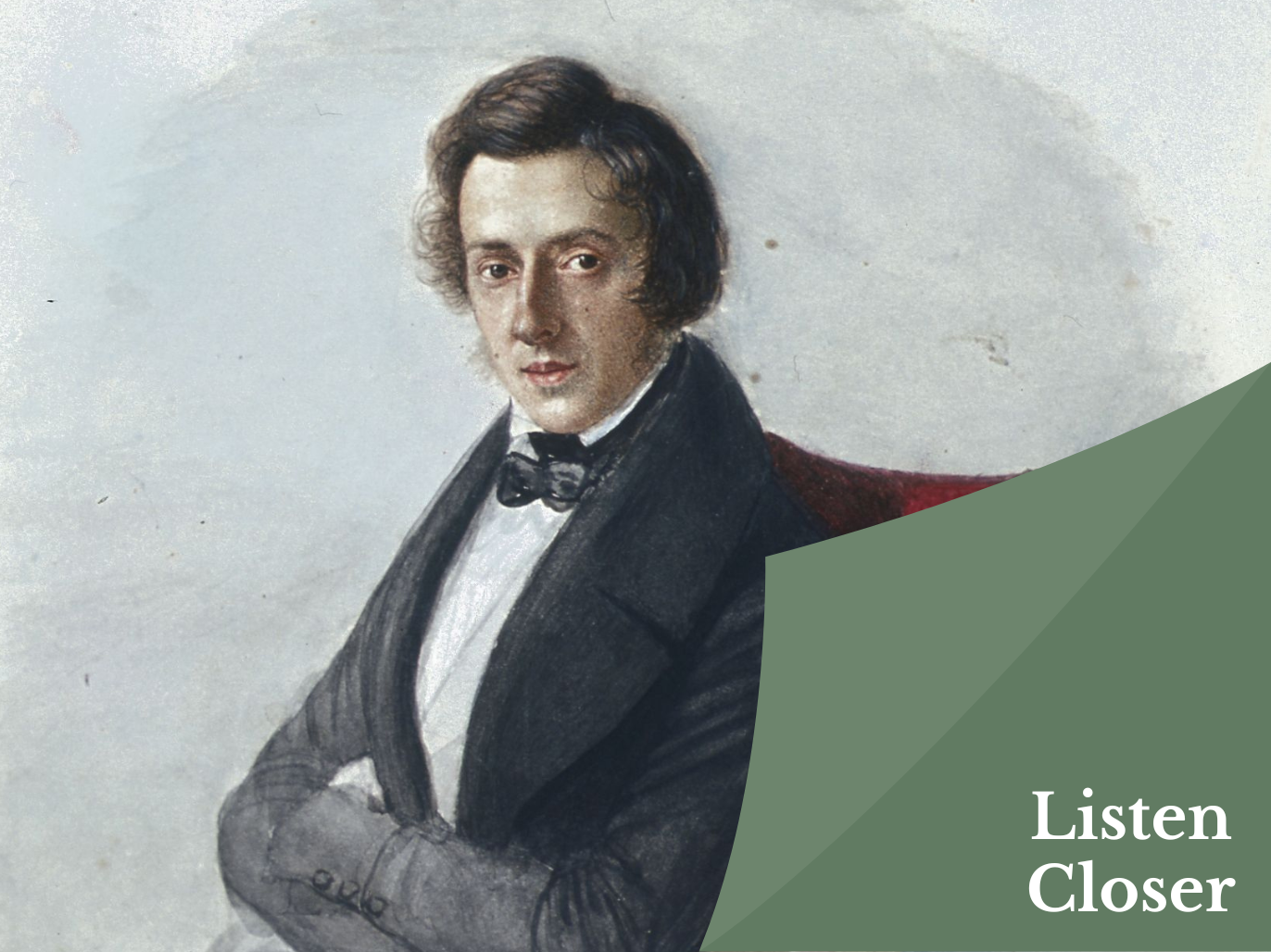Frédéric Chopin, now one of the Fathers of classical music, was once a young man at the beginning of his career, carving out his future as a composer and pianist. His works for piano are infamously difficult and endlessly expressive however his works for orchestra are less appreciated. His Second Concerto marks a key moment in his career and a unique look into the history of this musical pioneer.
View author's page
Reading time estimated : 4 min
Chopin’s Piano Concerto No. 2: Early Signs of a Genius Pianist
First of all, it’s a piano concerto by Frédéric Chopin. A veritable “pianist’s pianist” who still ranks today amongst the instrument’s most celebrated and skilled advocates.
Chopin was still a teenager and had not yet finished his studies when he began work on his Piano Concerto no. 2 (which, confusingly, is actually the first of his two pieces in the genre). Yet the comments his teacher Józef Elsner left on his final report card hinted at what much of Europe would discover in the decade to come: “Chopin F., third year student, exceptional talent, musical genius.”
While he would go on to compose in a variety of genres, that “musical genius” was firmly rooted in the instrument he knew most intimately. The beautifully-spun melodies, the flourishes so effortless they feel like they’re being improvised right on the spot… Chopin was able to make the keyboard sing like few other composers and some of the hallmarks of his finest piano writing are already on display here. Let’s listen to Emanuel Ax bring out the almost operatic feel of the slow second movement of Chopin’s Piano Concerto No. 2:
A Unique Glimpse Into Chopin’s Orchestral Writing
Secondly, it’s one of just a handful of Chopin’s works for orchestra.
Considerable ink has been spilled over Chopin’s interest in and skill with orchestration. Rumours that he may have had a hand with the orchestration of his two concertos—perhaps from his teacher or fellow students?—have even inspired later generations of musicians to take their own liberties; pianists like Alfred Cortot and Mikahil Pletnev have both reorchestrated this concerto, for example.
During the nineteenth century, the concerto was a crucial part of a young virtuoso’s repertoire—particularly the double-threat performers who also composed. While Chopin had a complicated relationship with public performance, preferring intimate settings to larger concert halls, his pair of concertos helped establish him as a household name across Europe.

The first concert, then, although it was completely sold out and the boxes and seats had all gone three days beforehand, did not have as strong an impact on the general public as I had expected. The first Allegro was accessible only to a few, it was applauded but, it seems to me, that can only be because people were wondering what it was and wanted to act the connoisseur! The Adagio and the Rondo made the greatest impression, indeed genuine cheers could be heard… —Chopin on the first public performance of his Piano Concerto No. 2 in Warsaw.
While the concerto as a genre had existed for some time by the time Chopin’s pair came into being, the role of the solo instrument had shifted considerably, and during a fair portion of the nineteenth century was even the subject of intense debate. The rise of the virtuoso performer had placed unprecedented emphasis on technical pyrotechnics and some were beginning to worry the concerto was morphing into little more than a flashy one-man show. Chopin was undoubtedly part of the crop of virtuosos fascinating nineteenth-century audiences, but his overall reserved, melancholic style made his concertos a kind of middle ground.

